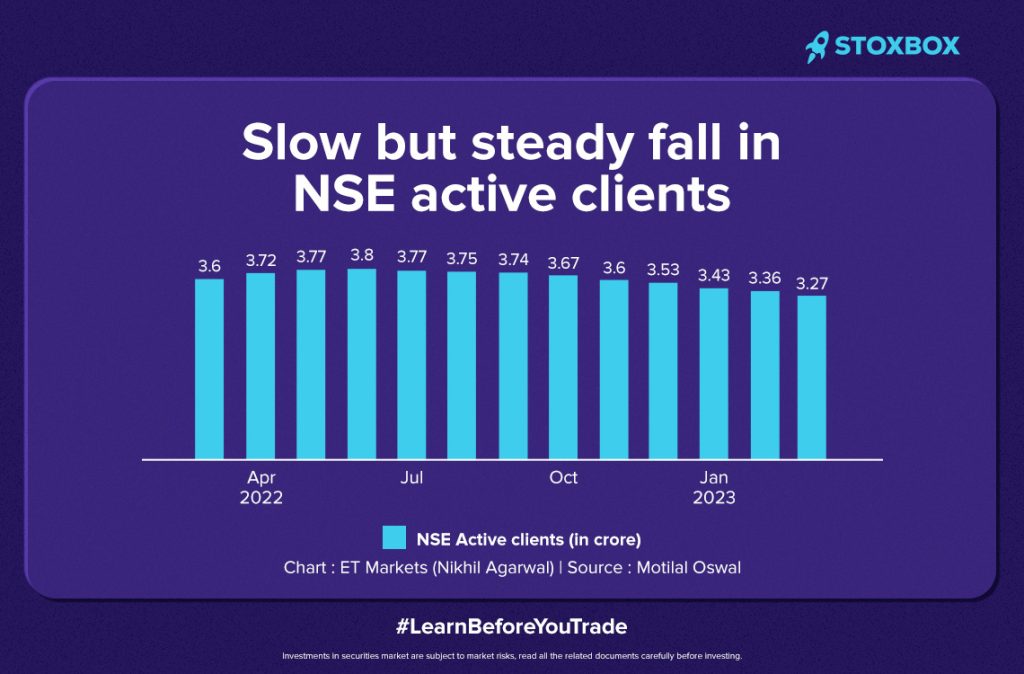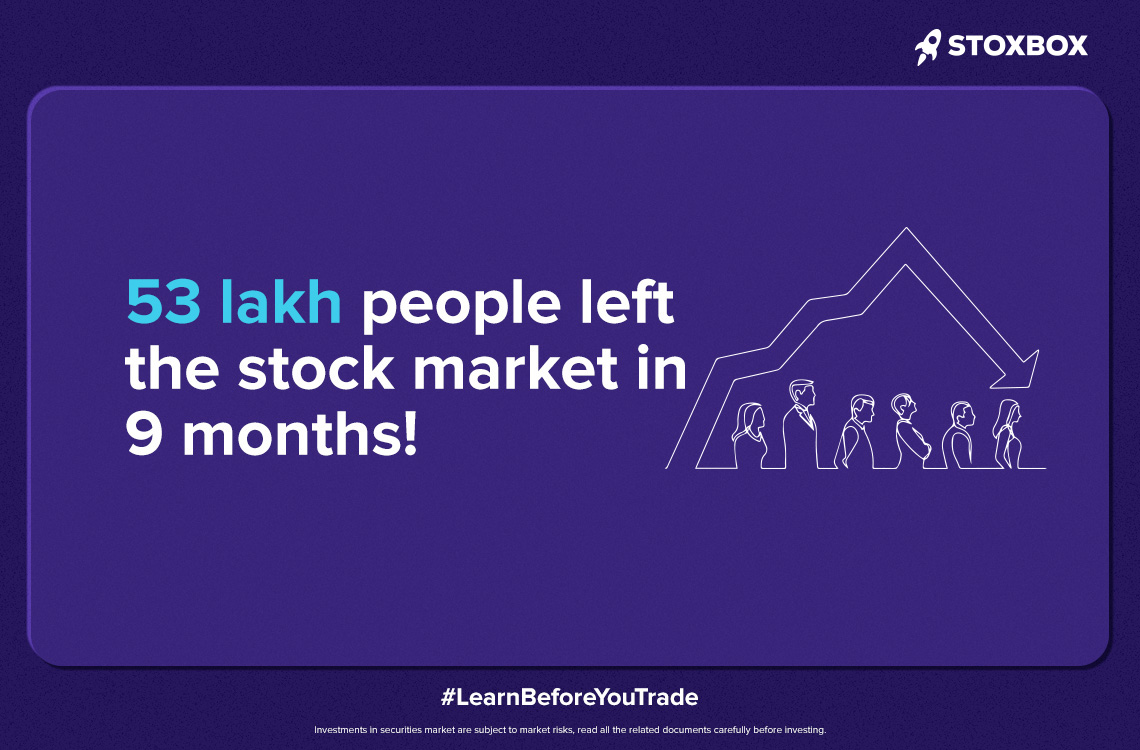Financial priorities significantly shifted during the lockdown, with more people re-evaluating their investments. Consequently, the stock market saw retail investors flocking in with high hopes of making humongous profits. Cut to a couple of years later, the National Stock Exchange (NSE) reported a whopping 53 lakh drop in active clients in the last nine months. What could’ve caused it?
So, what do the stats look like? So what are the numbers and statistics behind the decline in NSE users?

In March, the active client count on the National Stock Exchange (NSE) witnessed its ninth consecutive monthly decline, reaching 3.27 crore. This marked a significant decrease of 53 lakhs compared to the 3.8 crore investors recorded in June 2022.
What caused the decline in number of active traders?
While business had slowed down during the pandemic and work had taken a pause for a bit, people had ample amount of time in hand to research and build their portfolios. The return to work from office routine has reduced the amount of time and attention people have available for investing, leading to a decrease in trading activity.
Trading actively also requires a lot of research and analysis. With limited time after starting work from the office, this factor, too, would have demotivated the traders.
Due to this, there have been certain implications in the trading landscape. Trading volume and competition have decreased, and people are now focusing on long-term investments for stable growth. It has resulted in new opportunities for new traders.
People working from the office shouldn’t let their investments and trading take a back seat, as there are services like ready-made portfolios by Stoxbox that make management a lot simpler. With registered professionals curating tailored portfolios based on legitimate research, investors can sit back and relax and see their wealth grow.
Now the question is – should people endure the volatility of the stock market or move towards alternative investments? Well, the answer is not so simple. The decision depends on an individual’s risk tolerance, financial goals, and investment horizon. Let’s look at both situations in detail.
Alternate Forms of Investment:
Pros:
- Portfolio Diversification: Investing in different asset classes (such as stocks, bonds, real estate, or commodities) can help reduce risk and the impact of volatility in a particular investment.
- Potential for higher returns: Some alternate forms of investment, such as high-growth stocks or emerging markets, may offer greater potential for higher returns compared to traditional investments.
- Hedging against inflation: Certain alternative investments, such as gold or real estate, can act as a hedge against inflation and preserve purchasing power.
Cons:
- Higher risk: Alternate forms of investment often come with higher risks due to factors like limited regulation, market unpredictability, and illiquidity. It’s important to thoroughly research and understand the risks associated with any investment before committing funds.
- Complexity: Many alternative investments require specialised knowledge or access to specific markets, making them more complex to understand and evaluate.
Enduring Volatility:
Pros:
- Long-term growth potential: Historically, markets have tended to recover from downturns and deliver long-term growth. By staying invested through periods of volatility, investors can benefit from market recoveries and potentially earn higher returns.
- Cost averaging: Volatility allows for opportunities to purchase assets at lower prices, potentially increasing overall returns when the market rebounds.
- Less need for active management: Choosing to endure volatility may suit investors who prefer a passive investment strategy, avoiding the need for frequent buying and selling decisions.
Cons:
- Emotional stress: Enduring market volatility requires a strong emotional mindset, as it can be stressful to witness fluctuations and potential temporary losses in investment values.
- Short-term losses: In the short term, volatility can result in portfolio losses, which may cause financial strain if funds are needed urgently.
- Uncertainty and timing: It is challenging to predict market movements accurately. Remaining invested during periods of volatility means accepting the uncertainty of when the market will recover and potentially regain lost value.
Ultimately, individuals should carefully assess their financial situation, risk tolerance, and investment goals before deciding whether to explore alternative forms of investment or endure volatility. It’s advisable to consult with a financial advisor who can provide personalised guidance based on your specific circumstances or read more about the market. A mentor can offer valuable insights during such tricky situations.
You might also Like.
Union Budget 2025-26 Impact on Sectors
Edit Announcement Impact Companies Enhancing the credit guarantee cover for...


